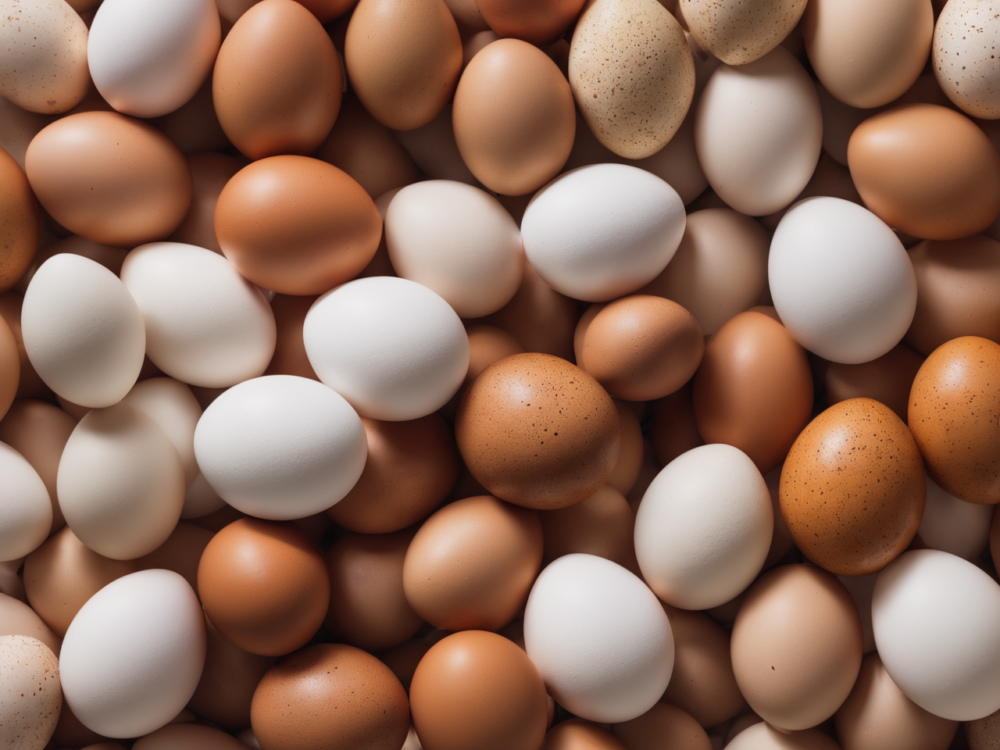The age-old debate surrounding brown and white eggs often leaves many wondering which is the superior choice. Brown eggs are frequently associated with naturalness and enhanced nutrition, but is there scientific evidence to support this belief? Let’s set the record straight: there is no significant nutritional difference between brown and white eggs. Contrary to popular belief, extensive research indicates that eggshell colour does not correlate with the nutritional composition of the egg.
The Color of the Eggshell: A Matter of Hen Breed
The primary factor determining the colour of an eggshell is not its nutritional content but rather the breed of the hen that lays it. Brown-feathered hens typically lay brown eggs, while white-feathered hens lay white eggs. Specific chicken breeds, such as Leghorns, White Rocks, and Cornish, are renowned for producing white eggs. In contrast, breeds like Rhode Island Reds, New Hampshire, and Plymouth Rocks tend to lay brown eggs.
However, when we examine the scientific and compositional aspects of these eggs, we find that they are essentially identical in terms of nutrition. The nutritional profiles of egg whites and yolks are nearly indistinguishable, making both types of eggs excellent sources of protein, vitamins, and minerals that complement a well-rounded diet.
Nutritional Influences: Diet and Environment
While eggshell colour itself does not impact nutritional content, what a hen eats and the environmental conditions it experiences can influence the nutritional quality of its eggs.
Price Differences Explained
So, what contributes to the common misconception that brown eggs are healthier or more nutritious than white eggs? One key factor is the price difference. Brown eggs are often priced higher than white eggs, but this price gap is not indicative of their nutritional value. Instead, it arises from a few other factors.
Firstly, chickens that lay brown eggs are generally larger than their counterparts that lay white eggs. Breeds like Rhode Island Reds and Plymouth Rocks, known for producing brown eggs, tend to be bulkier birds and lay larger eggs. Additionally, their larger size leads to increased feed consumption, resulting in slightly elevated production costs associated with brown eggs. These higher costs are ultimately reflected in the pricing of brown eggs, contributing to the perception of superior quality.
Secondly, white-feathered hens usually produce more eggs than brown-feathered hens. The higher egg production yields larger supplies of white eggs, which can lead to lower prices due to market dynamics. Commercial egg production often involves breeds like White Leghorns, chosen for their prolific egg-laying abilities as they have been selectively bred for high egg production rates.
A Matter of Personal Preference
In the end, the choice between brown and white eggs should be based on personal preference, budget, and availability. Rest assured that you are not sacrificing nutritional value by selecting one over the other. The colour of the eggshell is merely a reflection of the hen’s breed and holds no bearing on the quality or health benefits of the egg’s contents.
Ultimately, what truly matters is how you enjoy your eggs, whether they are sunny-side up, scrambled, or part of a delectable omelette. The egg, regardless of its shell colour, remains a nutritious and versatile culinary delight.





